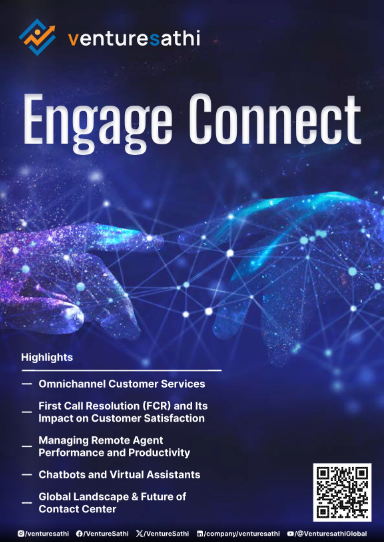Managing Remote Agent Performance and Productivity

With the rise of remote work, managing the performance and productivity of contact center agents operating from various locations has become a paramount concern. Efficient management ensures that customer service remains top-notch and that remote agents are engaged and motivated. Here, we explore seven essential strategies for successfully managing remote contact center agents to enhance productivity, secure robust results, and bolster your brand’s reputation.
1. Centralize Channel Management:
In today’s digital landscape, being present across multiple digital channels is imperative. Email, live chat, social media, messaging apps – customers expect rapid responses across these platforms. Managing these channels separately is impractical and inefficient.
- Unified Platform: opt for a unified platform that centralizes all digital channels. This approach streamlines responses and ensures quick customer interactions.
- Skills-Based Teams: Organize teams based on skills rather than segregating them by channels. This adaptability enhances customer experience, aligning with the evolving demands of modern customer service.
- Cloud-Based Tools: Utilize cloud-based tools for seamless remote work. Agents require only a computer and internet connection, eliminating reliance on on-premises hardware. This approach reduces costs and training needs.
- Integrated CRM: Integration of CRM with the contact center solution empowers agents with access to comprehensive customer information, all conveniently available on a single tab. This enhances agility in adapting to changes and serving clients effectively.
2. Facilitate Collaboration Between Agents and AI
Contrary to initial concerns, AI is not a replacement for agents; it empowers them. Collaboration between AI and agents is key, each playing a distinct role. AI handles routine tasks, such as order tracking and document requests, while agents focus on complex interactions. A seamless handover between AI and agents on the same channel ensures customer satisfaction.
3. Promote Employee Empowerment:
Engaged agents deliver superior customer service. Employee empowerment, granting authority, responsibility, and resources, is a fundamental driver of top-notch customer experiences.
- Remote Autonomy: In a remote working setup, agents should possess the autonomy to make decisions independently within defined boundaries, reducing dependence on constant approvals.
- Cloud-Based Contact Center Software: Cloud-based contact center software centralizes all digital channels, simplifying agent workflows. This accessibility empowers agents to enhance customer satisfaction and productivity.
4. Implement Call Deflection:
Recognize that while customers are adapting to digital channels, some still prefer phone calls due to unawareness of alternative options. Implement call deflection strategies to guide customers toward digital channels, reducing agent workload and enhancing productivity.
- Managing Calls: Managing calls from home can be challenging due to the need for a quiet environment. Offering alternative digital channels reduces customer wait times and streamlines interaction management.
- Preference for Text-Based Communication: Acknowledge that many agents prefer text-based communication, which is manageable with asynchronous channels. Agents can handle multiple interactions simultaneously without additional hardware and background noise concerns.
- Collaboration with Chatbots: Leverage chatbots to complete specific tasks, such as processing payments or authenticating users. This approach benefits both customers and companies.
5. Monitor Agent Productivity and Activity Remotely:
Effective monitoring of agent productivity and activity is vital in a remote work setting. Cloud-based solutions provide comprehensive insights into essential KPIs, including average handling time, customer satisfaction, and first-contact resolution.
- Policy and KPIs: Establish policies for measuring remote agent productivity and define KPIs tailored to remote work conditions.
- Work Progress Tracking: Use project management software to track work progress, estimate task completion times, and monitor time spent on tasks.
- Reporting and Analysis: Implement a robust reporting structure and analyze reports to assess agent performance. Monitor call logs, customer satisfaction, handling times, and other critical metrics.
6. Foster a Virtual Team Culture:
Creating a strong team culture among remote agents is essential for maintaining engagement and collaboration. Encourage team building through virtual team meetings, group messaging platforms, and collaborative projects. Recognize and reward outstanding performance and team achievements to boost morale and create a sense of belonging among agents who may be working in different locations.
7. Prioritize Mental Health and Well-being:
Remote work can sometimes blur the lines between personal and professional life, leading to potential burnout and mental health challenges for agents. It’s crucial to prioritize the well-being of your remote team. Encourage regular breaks, promote work-life balance, and provide access to mental health resources. A mentally healthy workforce is more likely to deliver exceptional customer service consistently.
Effectively managing remote agent performance and productivity ensures a seamless transition to remote work, maintains exceptional service standards and drives positive results. With these strategies, contact centers can optimize productivity and deliver outstanding customer experiences, irrespective of their agents’ remote locations.

